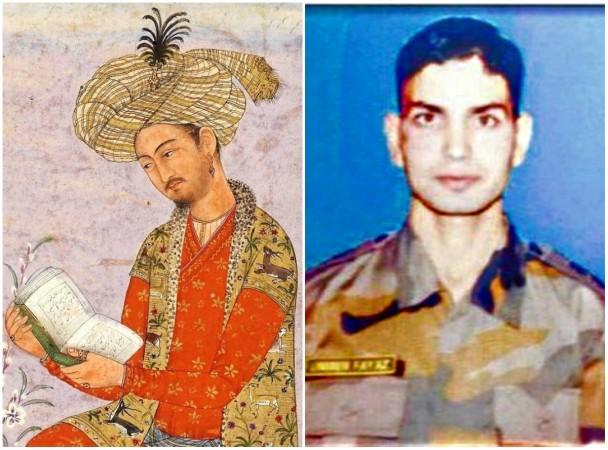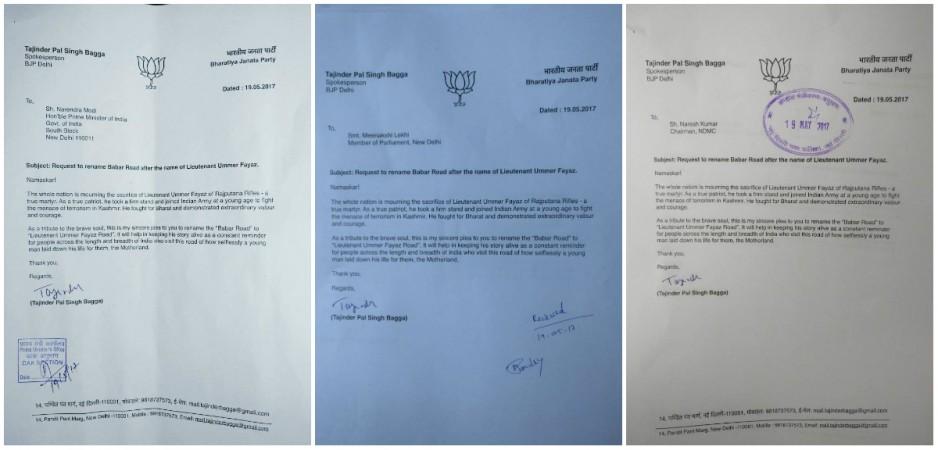
The Delhi BJP has petitioned Prime Minister Narendra Modi, BJP national spokesperson Meenakshi Lekhi and North Delhi Municipal Council (NDMC) Chairman Naresh Kumar to rename Babar Road after Lieutenant Ummer Fayaz, the Indian Army doctor whose bullet-riddled body was left behind by terrorists in Jammu and Kashmir on May 10.
The petition raises an interesting conundrum for those who might not want Babar Road renamed, based on the argument that it would mean a loss of history and culture. They would have to face questions on their patriotism, given that the alternative name was that of a man being considered a martyr.
The demand
Delhi BJP spokesperson Tajinder Pal Singh Bagga, in a letter to Modi, Lekhi and the NDMC chief, has written in a letter: "The whole nation is mourning the sacrifice of Lieutenant Ummer Fayaz of Rajputana Rifles — a true martyr. As a true patriot, he took a firm stand and joined Indian Army at a young age to fight the menace of terrorism in Kashmir. He fought for Bharat and demonstrated extraordinary valour and courage. [sic]"
He added in the letter: "As a tribute to the brave soul, this is my sincere plea to you to rename the 'Babar Road' to 'Lieutenant Ummer Fayaz Road'. It will help in keeping his story alive as a constant reminder to people across the length and breadth of India who visit this road of how selflessly a young man laid down his life for them, the Motherland. [sic]"

The conundrum
A similar situation had presented itself when BJP MP Mahesh Girri had petitioned the prime minister to rename another road named after a Mughal. Only that time it was about Aurangzeb Road being renamed after former President and "rocket man of India" APJ Abdul Kalam.
The move had been opposed by historians and politicians back then, including JD-U chief Sharad Yadav, who had said it was like "trying to rewrite" Delhi's history. However, it had got the support of many because Aurangzeb was also one of the most hated historical figures in India.
That is not the case with Babar, and that is something both historians and politicians will point out. However, they might then run the risk of being called unpatriotic or anti-national, because they would then be opposing an honour for an Indian Army soldier who was killed by terrorists even when he was not in uniform! Fayaz, it may be remembered, was abducted from a wedding he had gone to attend, and terrorists left his bullet-riddled body in a different district.














